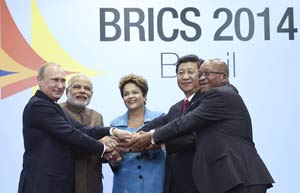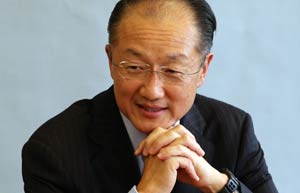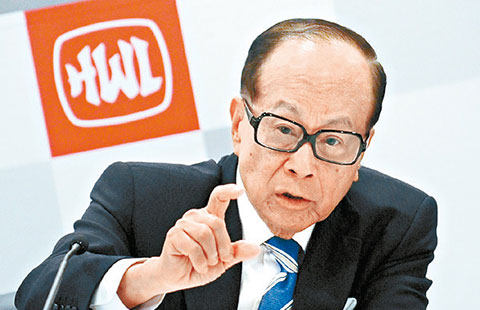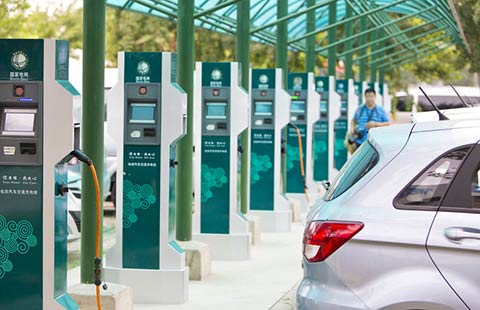BRICS bank vis-a-vis IMF
By Mark Williams (China Daily) Updated: 2014-07-25 07:21Last week's agreement stated that the BRICS bank would lend both within the BRICS countries and to other emerging economies. But its lending capacity will be limited, particularly in the early years, creating the potential for tension between those wanting to use the bank to support domestic development objectives, and those looking to support commercially viable projects wherever they might be. The fact that it took five years of talks to get the BRICS bank deal signed suggests that, behind the scenes, the BRICS member states have struggled to arrive at a consensus.
If the BRICS bank has been set up as a smaller rival to the World Bank, the CRA looks like an alternative to the IMF, albeit much smaller in size and ambition. The CRA is a system of currency swap agreements between the BRICS economies - in other words, agreements to lend to each other if some market disruption makes it difficult for them to access the needed foreign exchange.
The agreements will only exist on paper until the currency swaps are activated in the event of a crisis. There will be no pool of jointly managed reserves waiting for a rainy day. In this, the CRA resembles not so much the IMF as the Chiang Mai Initiative, which was established by Asian countries' governments after the Asian financial crisis and which remains to this day an agreement on paper only. While the IMF has been active in recent years in lending to struggling economies around the world, the swaps agreed under the Chiang Mai Initiative have never been used. This is one reason to be cautious about the impact the CRA will have.
Another issue is the BRICS bank's size. The agreed swaps add up on paper to only $100 billion, compared with the more than $1 trillion pledged or committed to the IMF. But the main reason to question the talk of the CRA challenging the IMF is that it will be limited to the five BRICS economies. For any other economies that run into trouble financing external obligations, the IMF is likely to remain the prime multilateral source of support.
The author is chief Asia economist at Capital Economics, a London-based independent macroeconomic research consultancy.
 |
 |
| BRICS bank to be headquartered in Shanghai |
|
- China unveils measures to better finance small enterprises
- Service sector the key to consumer-led growth
- HSBC PMI picks up as policy easing kicks in
- Investors yield to chengtou notes' charms
- Output quotas rise 10% for rare earth firms
- Finding new bearings for development
- Xbox One rights given to China Telecom
- Boom for sales of baby products















